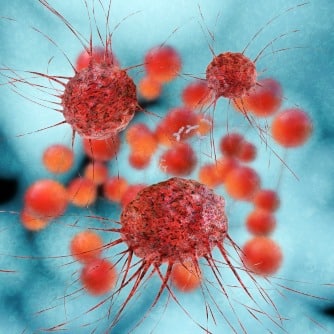Paclitaxel, is widely used to treat breast, lung, and pancreatic cancers, however it is often accompanied by severe side effects, such as hair loss, muscle cramping, and diarrhea. It can also cause patients to be vulnerable to serious infection. Exosomes, are tiny spheres harvested from the white blood cells that protect the body against infection. Exosomes consist of the same material as cell membranes and the human body does not recognize them as foreign (which has been one of the hardest obstacles to overcome in the past, in using plastics-based nanoparticles as drug-delivery systems). Elena Batrakova, Ph.D., an associate professor at North Carolina at Chapel Hill’s Eshelman School of Pharmacy’s Center for Nanotechnology in Drug Delivery, and her colleagues loaded paclitaxel inside exosomes taken from mice. Following this, they tested the treatment against multiple-drug-resistant cancer cells in petri dishes. They called this treatment exoPXT and found that they needed 50 times less of it to kill the cancer cells than they did when they used commercially available versions of paclitaxel. “That matters because we may eventually be able to treat patients with smaller and more accurate doses of powerful chemotherapy drugs, resulting in more effective treatment with fewer and milder side effects,” explained lead researcher Elena Batrakova.
Drug-Resistant Cancer Wiped Out with 50 Times Less Chemo
RELATED ARTICLES




